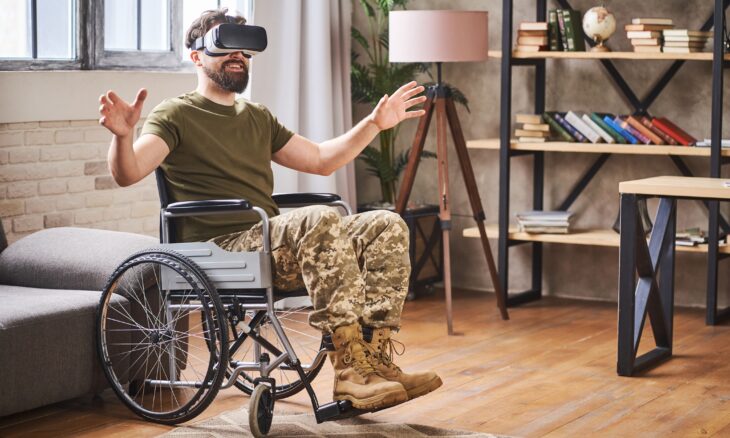VA will develop an XR app for the mental health of aged veterans
Through the use of digital therapies and extended reality, the group hopes to create therapeutic trips for elderly Vietnam veterans that may improve their relationships with caretakers.
Mynd Immersive, a technology startup specialising in extended reality therapy for older persons, collaborates with the United States Department of Veterans Affairs. It will work with VA Immersive, a part of the Office of Healthcare Innovation and Learning, VA, to improve the emotional well-being of Vietnam combat veterans.
The corporation says that the three-year joint research and development partnership would allow it to combine cutting-edge VR innovation with unique content developed by its facilities. This will be combined with the agency’s extensive knowledge of the behavioural and emotional requirements of Vietnam combat veterans.
The company claims that its virtual reality programme, A Path to Peace, will help older Vietnam veterans get better emotional care.
The goal, according to Chris Brickler, Mynd Immersive’s CEO, is to foster healing, peace, and reconciliation by providing a secure and tranquil setting in which veterans may discover the contemporary vitality of Vietnam.
Mynd said that as part of its partnership with VA Immersive, it would interact with veterans around the nation to gather firsthand accounts and perspectives that inform virtual travels designed specifically for Vietnam veterans, with the aim of enhancing the creation of the new XR application.
The company claims that more than 100 long-term veteran care facilities around the country utilise its XR and VR technologies to improve patients’ moods, reduce feelings of loneliness, and strengthen relationships between patients and their caretakers.
According to the VA’s Office of Research & Development, Vietnam Veterans are the largest cohort of American Veterans in terms of service duration.
The VA came to the conclusion in the 1988 National Vietnam Veterans Readjustment Study, citing studies on Vietnam veterans, that a sizable proportion of soldiers of that period were dealing with a broad range of life-adjustment issues and psychiatric issues, including PTSD.
In a significant, multiyear study done in collaboration with Stanford University, VR therapy improved mood, reduced feelings of loneliness, and boosted engagement between senior-caregiver relationships.
Virtual reality is really beneficial for seniors, says Dr. Jeremy Bailenson, Stanford University’s founding head of the lab.
A survey with 245 elderly citizens and 39 carers was completed in 16 senior-care communities located across 10 states. Of them, 94.9% thought that their connections with patients would benefit from utilising virtual reality (VR) in a moderate to highly positive way, while 89.5% of residents in elder care felt the same way about their relationships with caretakers.
According to Bailenson, since the study’s first publication in November, responses from seniors and carers have been overwhelmingly favourable, indicating that virtual reality (VR) has the potential to be a useful and long-lasting tool in senior living facilities.
VR is the goldilocks answer to the shortage of behavioural and mental health specialists, according to Risa Weisberg, the chief clinical officer of digital therapeutics provider Realised Care, as she said to Healthcare IT News in 2022.
Professor of psychiatry at Boston University School of Medicine and licenced clinical psychologist Weisberg stated that these experiences have the potential to demonstrate clinical effectiveness that may be more akin to some in-person therapy, but with the flexibility of being used without a clinician present. This is a result of the experiences being completely immersive and digested as if they were occurring to you directly.




